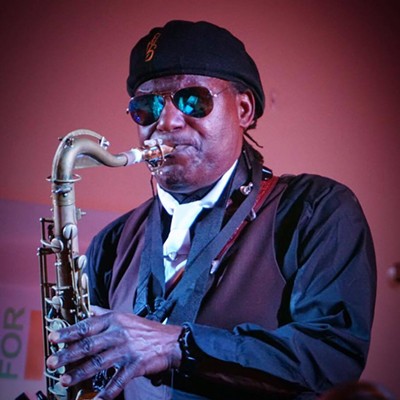
- Courtesy Of Sam Kerson
- Section of the mural at Vermont Law School
Artist Sam Kerson sued the school in December 2020, arguing that permanently concealing his work violates the Visual Artists Rights Act, a 1990 federal law that protects an artist’s work from "intentional distortion, mutilation, or other modification.”
The law school covered the mural with acoustic panels after previously
announcing in July 2020 it would paint over the controversial artwork. Students objected to the mural’s cartoonish portrayal of Black people and
framing of white people as “saviors” in the abolition movement.
Kerson had sought a preliminary injunction to prevent the school from
covering the mural while the suit was decided, which a district court denied in
March 2021.
Related Artist Sues Vermont Law School Over Planned Removal of His Slavery-Themed Mural

The three-judge panel did not agree, writing in an August 18 ruling that Kerson’s reading of the law “does not comport with any conventional understanding of the word ‘destruction,’” and “merely ensconcing a work of art behind a barrier neither modifies nor destroys the work.”
Steven Hyman, an attorney representing Kerson, expressed concern that the opinion could limit artists' rights to how their work is used.
"That you can take art and cover it ... is just undoing the whole purpose of VARA," Hyman said. "This opinion can be used more broadly against artists and giving more rights to the so-called 'property owners,' which was not the purpose of the statute."
Related Vermont Law School to Remove Mural Considered Offensive

for the South Royalton school, said in a statement. “We believe [it] strikes the appropriate balance between the competing interests at stake.”
Hyman said the artist is "considering all options," including an appeal. An appeal of the decision would bring the case to the U.S. Supreme Court, which would decide whether to hear it.











Comments
Comments are closed.
From 2014-2020, Seven Days allowed readers to comment on all stories posted on our website. While we've appreciated the suggestions and insights, right now Seven Days is prioritizing our core mission — producing high-quality, responsible local journalism — over moderating online debates between readers.
To criticize, correct or praise our reporting, please send us a letter to the editor or send us a tip. We’ll check it out and report the results.
Online comments may return when we have better tech tools for managing them. Thanks for reading.